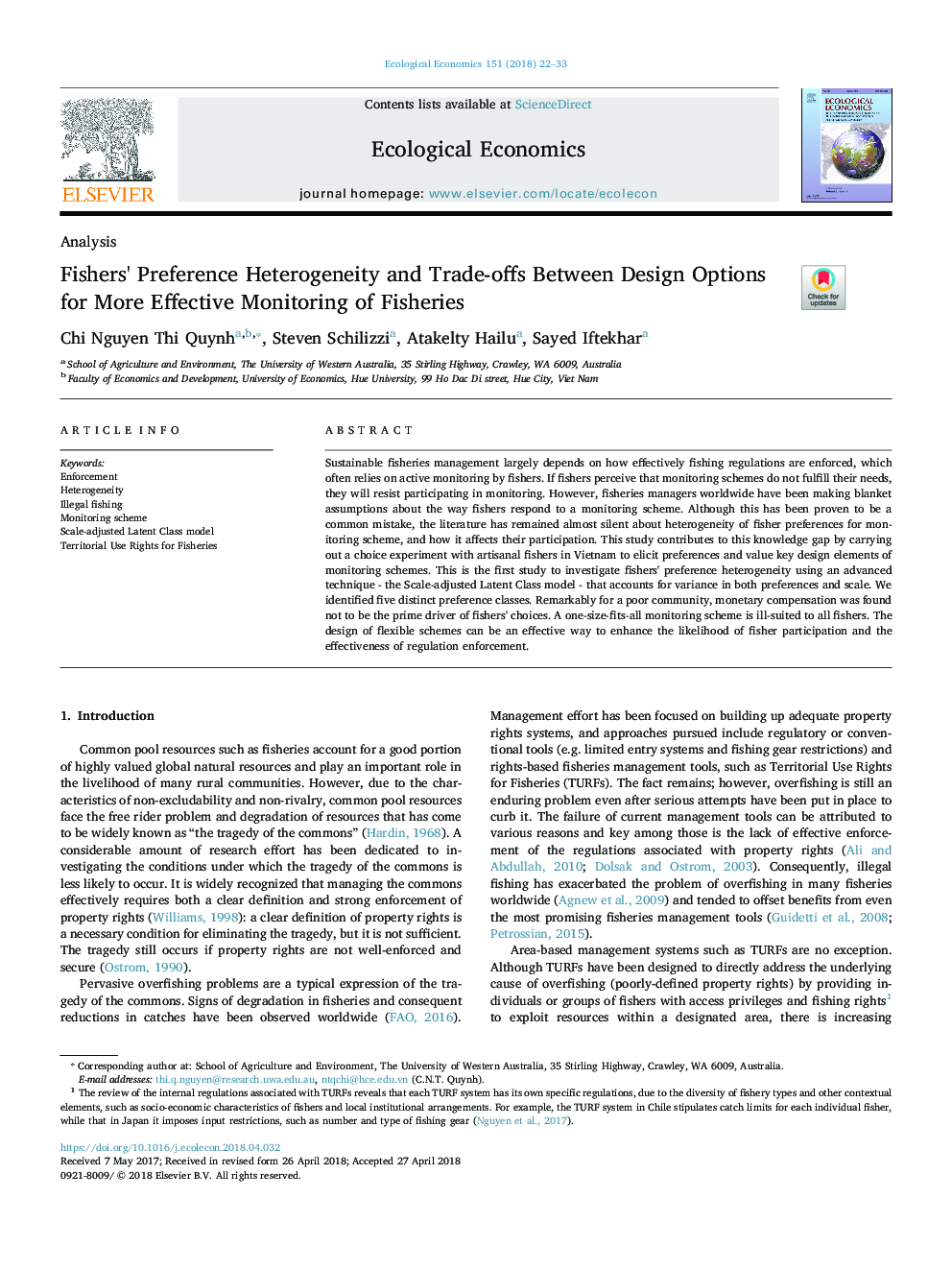| Article ID | Journal | Published Year | Pages | File Type |
|---|---|---|---|---|
| 7343873 | Ecological Economics | 2018 | 12 Pages |
Abstract
Sustainable fisheries management largely depends on how effectively fishing regulations are enforced, which often relies on active monitoring by fishers. If fishers perceive that monitoring schemes do not fulfill their needs, they will resist participating in monitoring. However, fisheries managers worldwide have been making blanket assumptions about the way fishers respond to a monitoring scheme. Although this has been proven to be a common mistake, the literature has remained almost silent about heterogeneity of fisher preferences for monitoring scheme, and how it affects their participation. This study contributes to this knowledge gap by carrying out a choice experiment with artisanal fishers in Vietnam to elicit preferences and value key design elements of monitoring schemes. This is the first study to investigate fishers' preference heterogeneity using an advanced technique - the Scale-adjusted Latent Class model - that accounts for variance in both preferences and scale. We identified five distinct preference classes. Remarkably for a poor community, monetary compensation was found not to be the prime driver of fishers' choices. A one-size-fits-all monitoring scheme is ill-suited to all fishers. The design of flexible schemes can be an effective way to enhance the likelihood of fisher participation and the effectiveness of regulation enforcement.
Related Topics
Life Sciences
Agricultural and Biological Sciences
Ecology, Evolution, Behavior and Systematics
Authors
Chi Nguyen Thi Quynh, Steven Schilizzi, Atakelty Hailu, Sayed Iftekhar,
